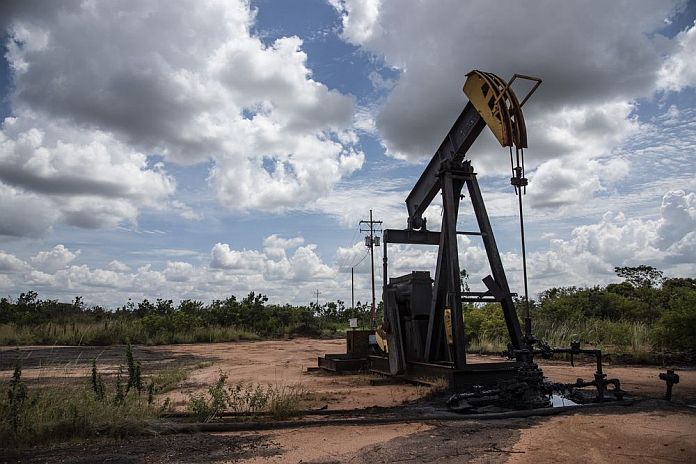By Ricardo Vaz
Mérida, (venezuelanalysis.com) – Venezuela’s oil output has remained at historic lows at the close of 2020.
The latest OPEC monthly report placed the Caribbean nation’s production at 431,000 barrels per day (bpd) in December, according to secondary sources. The number represents a 17,000 bpd increase compared to November.
The numbers reported directly by state oil company PDVSA stood slightly higher at 441,000 bpd, up from 431,000 bpd in November.
Venezuela’s most important industry, which has been plagued by corruption, mismanagement and a brain drain, has seen output fall sharply under the weight of punishing US sanctions. Daily production has consistently fallen in recent years, going from an average of 1.9 million bpd in 2017 to just 500,000 bpd in 2020.
The US Treasury Department has targeted the Venezuelan oil industry repeatedly since levying financial sanctions in August 2017. Measures have included an oil embargo, secondary sanctions against Russian energy giant Rosneft, as well as taking aim at shipping companies and vessels.
In late 2020, the Trump administration moved to put a stop to swap deals by threatening multinational corporations such as Spain’s Repsol and India’s Reliance Industries into winding down their activities in Venezuela.
In contrast, oil giant Chevron and other US-based service providers had their sanctions waivers extended until June 2021. However, Halliburton recently announced it was laying off all its Venezuela staff to keep a presence in the country through equipment and facilities only.
The Biden administration is due to take office on January 20 and has yet to take a position on Venezuela since the November elections. Nevertheless, the Miami Herald quoted current White House Special Envoy for Venezuela Elliott Abrams saying he expects no “major changes in US policy” and that the new administration will continue backing self-proclaimed “Interim President” Juan Guaido.
With the industry mired in a slump and growing difficulties to export crude, the Maduro government has increasingly looked to improve conditions for private capital investment, both national and foreign.
Under former president Hugo Chávez, the government introduced legislation to increase PDVSA’s role in an industry historically dominated by foreign corporations. The 2001 Hydrocarbon Law and a 2007 decree stipulate that the state oil company must retain operational control of oilfields, as well as hold a share of 60 percent or more in joint ventures.
According to Reuters, the Venezuelan government has offered to let small oilfield contractors operate fields owned by PDVSA in exchange for a share of the profits, with reports that a larger participation for foreign capital in mixed companies is also on the table.
The since-dissolved National Constituent Assembly approved an “anti-blockade” law in October 2020 allowing the government to implement measures to boost investment as well as suspend legislation should it be “counterproductive” as a result of sanctions. The law also includes “confidentiality” clauses, making it possible for deals to be signed in secret to avoid US unilateral measures.
On Tuesday, president Maduro stated in annual state of the union address that his administration’s goal was to recover production to 1.5 million bpd over the coming months, while reiterating the call for foreign investment.
Some leftist forces have criticized the government’s overtures to private investors, arguing that the country’s sovereignty over strategic sectors is imperiled, and that a lack of transparency could also lend itself to corrupt dealings.





